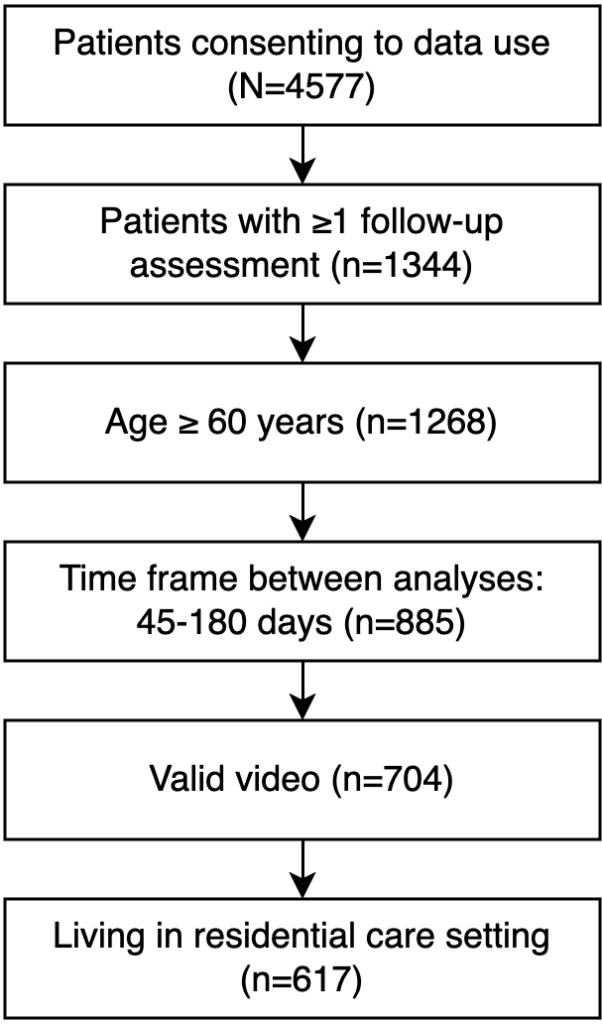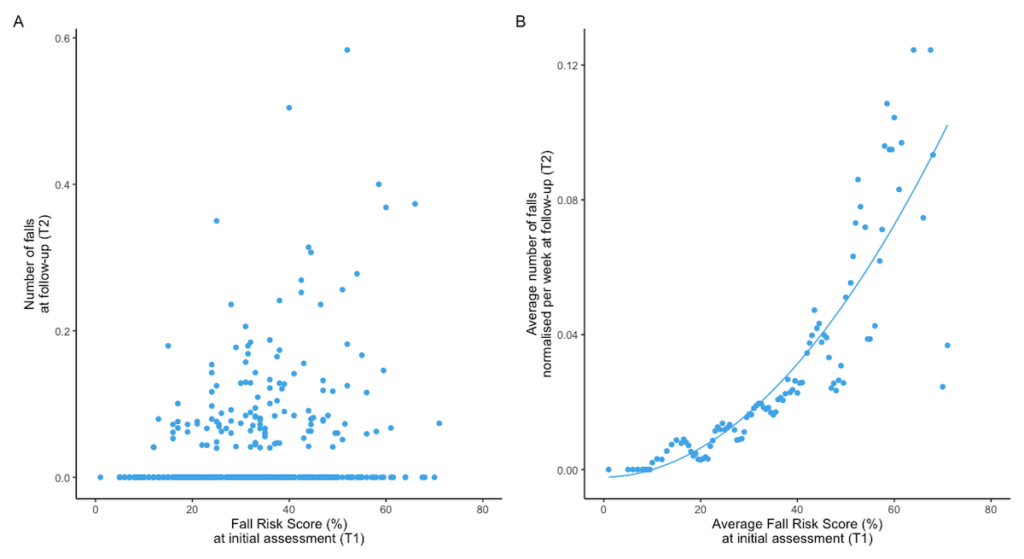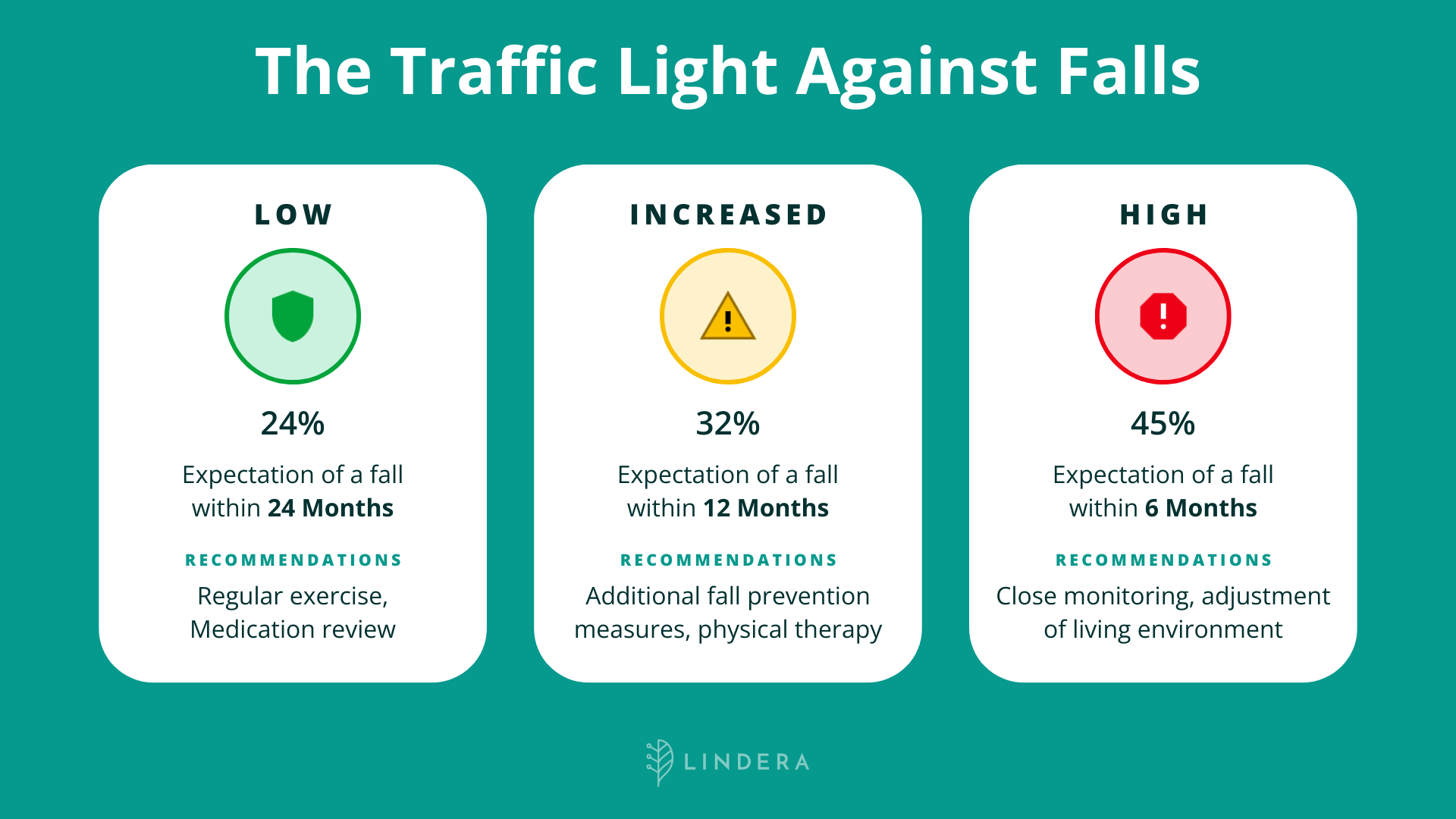Our retrospective cohort study evaluated the prognostic validity of the Fall Risk Score (FRS), a multifactorial fall risk scale generated by the mHealth app LINDERA Mobility Analysis. The study included 617 older adults (857 observations) residing in German nursing facilities.
The FRS was assessed at the initial evaluation (T1) and correlated with fall frequency during the follow-up evaluation (T2). The results of this research have been published in the prestigious journal JMIR Aging.

Study results
- A quadratic regression model provided the best fit to the data, demonstrating a significantly strong positive relationship between the FRS at T1 and falls at T2 (Spearman correlation coefficient = 0.960, P < .001).
- Thresholds for the FRS were identified: an FRS of 45%, 32%, and 24% corresponded to the likelihood of a fall within 6, 12, and 24 months, respectively.
- The Minimum Clinically Important Differences (MCID) for changes in the FRS were calculated to quantify the clinical relevance of variations in the FRS.
- Subgroup analyses revealed that the FRS demonstrated particularly high prognostic validity in individuals with slower gait speeds (<0.6 m/s), use of walking aids, and an assessment interval of 120 days.

Features of the LINDERA Mobility Analysis
- The app uses computer vision algorithms to extract precise gait parameters from smartphone videos recorded by caregivers.
- A standardized questionnaire integrated into the app collects additional fall risk factors.
- The FRS accounts for both intrinsic and extrinsic fall risk factors, assigning greater weight to specific factors such as limited mobility and dizziness.
Study Limitations
- The study focused on a specific population of older adults in nursing homes, limiting generalizability to other settings.
- Predictive accuracy of the FRS varied across subgroups, suggesting that further refinements may be necessary for certain populations.
Implications for Fall Prevention
Our findings underscore the potential of AI-based mHealth applications like the LINDERA Mobility Analysis to enhance fall risk assessment and prevention in older adults. The FRS emerged as a promising prognostic tool, particularly for individuals with specific risk factors such as slower gait speed or reliance on walking aids. The results highlight the importance of personalized fall prevention strategies and the need for additional research to validate and optimize such mHealth tools.
For further insights into the practical relevance of these findings, please refer to our press release or explore our AI-based podcast.

